El Salvador baby swapped at birth returns home
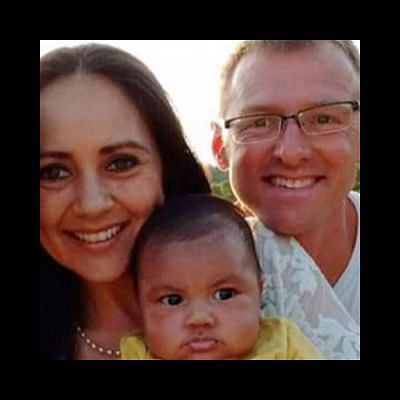
A British father and his wife have spoken of their heartbreak after being given the wrong baby by a hospital in El Salvador last year.
Richard Cushworth and his Salvadoran wife Mercy have only now been allowed to travel home to the US with their son Moses after DNA tests proved he had been swapped with another boy.
The couple had been waiting for over eight months for a birth certificate.
Both babies were returned to their real parents in September.
Speaking exclusively to BBC Radio 4's Today programme, the Cushworths described the pain of the long-running legal battle and the handing over of a child they had nurtured since birth.
"The thought that the baby I had been nursing, taken care of, loving him, bathing him - that he was not mine. And then I had another thought which came with it - where's my baby?" Cushworth said.
"So I had two thoughts - what's going to happen with this baby, and where's my baby."
Cushworth gave birth in her native El Salvador in May 2015 and her son spent his first night in a hospital nursery. But the next day - unknown to her - she was given a different baby to take home.
The couple said it felt "wonderful" to finally be back home together but they said they still had no idea how the swap had happened.
Charges against the doctor who delivered the baby were dropped two weeks ago.
Cushworth said she became suspicious when she noticed the features of the newborn differed from those of the baby doctors had initially handed her after she gave birth by emergency Caesarean.
"He was just passed by me and I gave him a kiss and then he was taken to the nursery and that was the last time I saw him," she said.
The next day nurses brought her a baby and insisted it was hers, despite her immediate doubts.
She said she thought the second baby's skin was darker.
After returning to their home in Dallas, Texas, Cushworth took a DNA test which said there was a 0% chance she could be the mother of the baby she had been given.
"I just fell to the floor," she said.
Cushworth, originally from Bradford, West Yorkshire, added: "I just felt a panic that my only child was lost or stolen, I didn't know."
Both babies, then four months old, were quickly returned to their biological parents but the couple said the happiness of getting their own son back was matched with sadness at having to give the other boy, Jacob, away.
"We were rushed in and we had to go really quickly and we barely had time to say goodbye. I got all his clothes and we handed him in. That was the most difficult part of all the situation," Cushworth said.
Cushworth said: "I just accepted it as my child. Now I look back at the pictures around the time we came to Dallas when he was three months old and I'm shocked that I never suspected, because you can see that it's just obviously not my child if you look at some of the pictures.
"I don't know how I didn't ask myself. You just don't think about these things. Who thinks about these things?"
His wife added: "I think we were in love with the baby. Even when I did the DNA tests, I thought I was betraying him. That was the feeling I had - I'm betraying my son but I cannot live with this."
Cushworth, said they had spent nine months trying to get the right paperwork to bring their son home to the US, a process that has almost bankrupted the family.
"It has forced our family to be separated, it's been awful. I thought it would be a matter of days, maybe weeks but not nine months. It has been dreadful."
They were helped by the British Ambassador to El Salvador, Bernhard Garside.
"When we first got involved it looked very much like an uphill struggle," Garside said. "My fear was we weren't really going to see a happy conclusion to this."
He said swapping the babies back was "the easy bit", but unravelling the paperwork took a long time through the Salvadoran court system and was only completed thanks to "good old fashioned diplomacy".
"If we have been able to play a part in it somewhere then it makes my job worthwhile," he added.

 For all latest news, follow The Daily Star's Google News channel.
For all latest news, follow The Daily Star's Google News channel. 

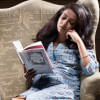

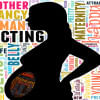
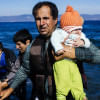


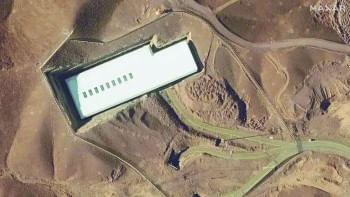
Comments